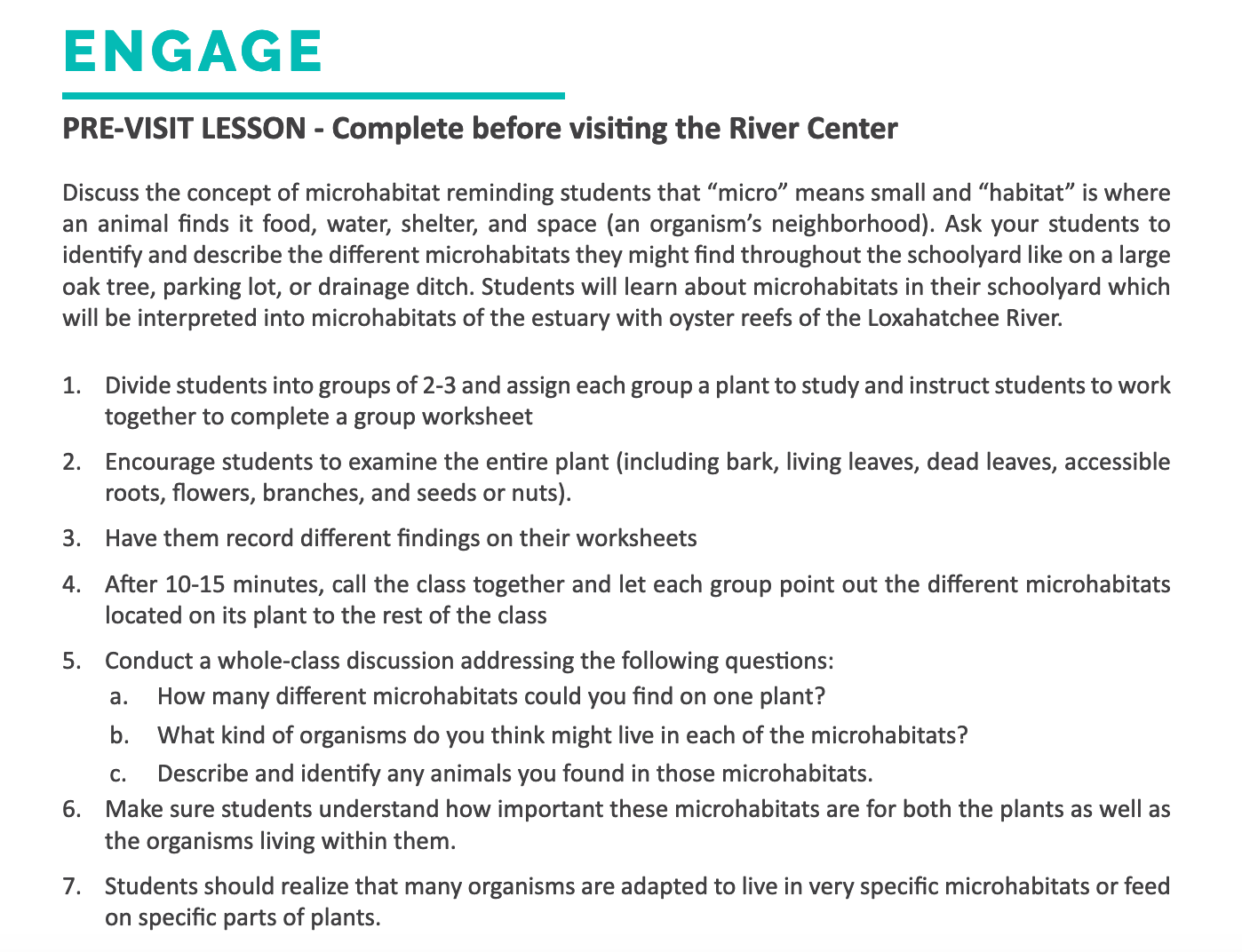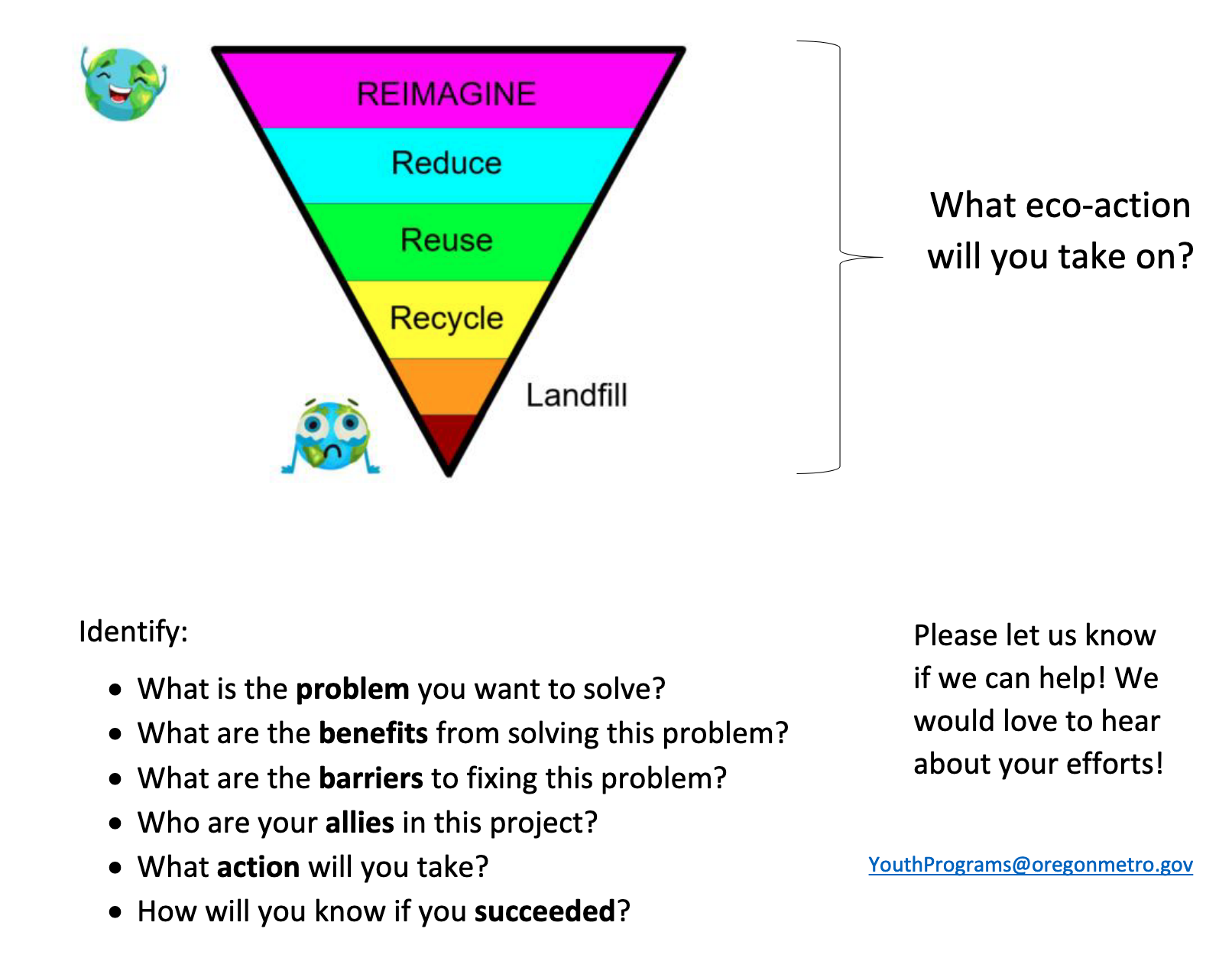Preparation
What is preparation? Provide opportunities for students to learn skills or background knowledge that will enable success when participating in the program. Both logistical preparation and preparation related to the concepts being taught can lead to higher outcomes for students (Lee, Stern & Powell, 2020).
What does it look like in practice? Add pre-activities or modules to prepare them for success; teach them background knowledge and/or how to use technology so that they can fully participate in program activities. Provide logistical information about what to bring to the program, and include details about what to expect when it begins.
The Oyster Reef Ecology program for students in grades 3-8 is focused on the role of oysters in the Loxahatchee River. Students discover animals that depend on oyster reefs for habitat, and learn about community efforts to rebuild reefs.
The educators have designed a 5E lesson and other materials in this document to help teachers prepare students for the field trip (virtual or in-person). The “Engage” pre-visit lesson is designed to introduce students to the concept of microhabitats as they identify and describe microhabitats in their schoolyards.

The “engage” lesson provides background knowledge about microhabitats, which allows them to better understand and investigate the oyster reef microhabitats during the program.
Oregon Metro
The Waste Management and the Compost Cycle program is for students in grades 4-7 and includes synchronous and asynchronous components. Students watch three videos in preparation for the activity with an educator. Each video has background information and discussion ideas for teachers to utilize. Then, the educator leads students through a compost investigation and explores techniques to reduce the amount of food waste through easy eco-actions.
Before meeting with an educator, students watch three short videos to learn background knowledge. The first video discusses the history of waste management, the second discusses the food life cycle, and the third demonstrates how a compost bin works. These videos help students understand local challenges regarding waste management, so that they are more prepared to discuss solutions.
Gaining this background knowledge from videos ahead of the program prepares students to participate in the Eco-Action planning activity outlined below. Having background knowledge makes them more informed about ways to help reduce waste in their communities when they meet with an educator.

Shaw Nature Center
Shaw Nature Center offers several Virtual Ecosystem Explorations that teach students observation skills and spark curiosity.
They use the prompts below for a variety of observation tasks in their programs. This preparation activity gives them a chance to use the observation prompts below with an object or organism at their location before they begin observing one of the ecosystems virtually.
The preparation task introduces important vocabulary and skills that students can then utilize when they attend the synchronous part of the program.


